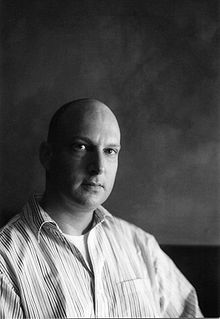A Quote by Kenneth Branagh
Everything is important, but there is a weight to these big or expected things and then there is the logistics of them and it's trying to find, while you worry about for instance the ballroom scene, how do you get 500 people to go to the loo in corsets and don't cost you an hour and how do you remember while you're organizing all that to take a breath and say, 'Well the scene is about all of that and it's about Prince hand on the small of Cinderella back as well' and we need time to do that properly as well.
Related Quotes
I'm friends with a lot of writers and so many of them say how much they hate signings and how they leave after a certain period of time. But what is so hard about sitting there while people tell you how much they love you? And if you don't like it, well, learn to like it. I try to take one person at a time. I never look down the line to see how many more people are left. And I always try to make people talk about something besides whatever they planned to say.
Hello, darling. Sorry about that. Sorry about the bony elbows, sorry we lived here, sorry about the scene at the bottom of the stairwell and how I ruined everything by saying it out loud. Especially that, but I should have known. You see, I take the parts that I remember and stitch them back together to make a creature that will do what I say or love me back.
With people in corsets you need, an hour and a half in you have to give somebody something, you have to have those trays with a little bit of fruit going around or something because you get that blood sugar [dropping] thing, so it's curious because that's in your mind at the same time as you're about to say, 'I think it's about the humanity and the depth of feeling and we need to feel [Cinderella] soul expand and by the way, more cheese for the people in the back.'
It is not nearly so important how well a message is received as how well it is sent. You cannot take responsibility for how well another accepts your truth; you can only ensure how well it is communicated. And by how well, I don't mean merely how clearly; I mean how lovingly, how compassionately, how sensitively, how courageously, and how completely.
I think with improv - and I say it all the time because it's become such a catch thing that you talk about improv - if the scene is well-written, you don't need to improv. But that being said, if something strikes you in the moment and, most importantly, you know where the scene is supposed to go, it's no different than method acting.
Interruptions: The average worker gets interrupted five times each hour. It takes an average of 5 minutes to handle each interruption and 1 minute to get back to what you were doing. This adds up to 30 minutes each hour or 50% of your time!!
You've got to think about "big things" while you're doing small things, so that all the small things go in the right direction.
have a much harder time writing stories than novels. I need the expansiveness of a novel and the propulsive energy it provides. When I think about scene - and when I teach scene writing - I'm thinking about questions. What questions are raised by a scene? What questions are answered? What questions persist from scene to scene to scene?
On the one hand, you have these huge budget films that cost millions of dollars. They are effects driven, they don't have well known actors in them, and they are making money. Well, some of them are. One the other hand, you have Stallone and Statham, and guys like DeNiro and Pacino, and Costner, who are all trying to make movies about real people. They are interested in character driven projects.
Acting isn't always about the amount of talent you have, or your ability to cry on command. The point is, how well can you take direction? How well can you put aside your own ideas or ego and listen to the ideas of the director and the people above you, while not giving up the passion and drive of that character?
Some people say, 'Well you're a man; how do you write about women or girls when you don't know about them?' Well, I've got my imagination, and I can write about women. Yes, I'll never be pregnant and give birth to children, but I can imagine a bit of what it's like. When you create characters, it's just about making them really real to people.



































